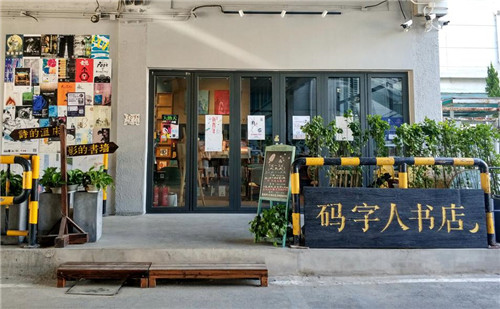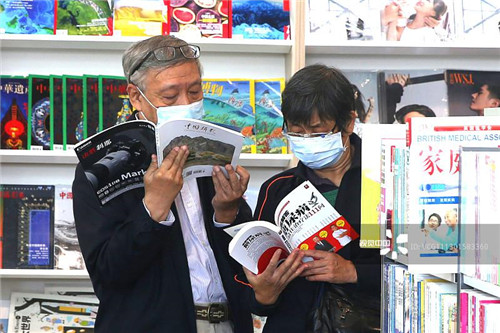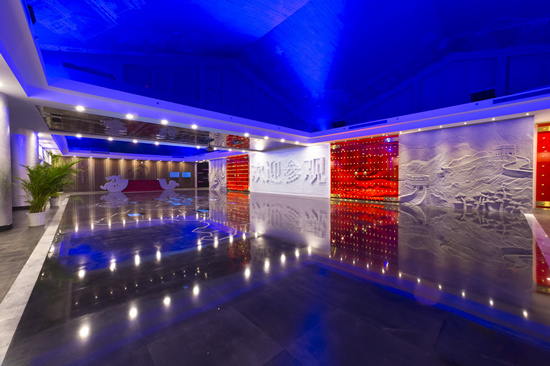Beijing bookstores to benefit from new incentives

Bibliophile Li Suwan's Mazi bookshop, located on Hepingli North Street in Beijing.[Photo by Zhao Naiming/For China Daily]
As a bibliophile, Li Suwan had long harbored a dream of running a bookshop. In 2018, she realized that dream, beginning her career as a shopkeeper in downtown Beijing at the age of 36.
"Bookshops should serve as lively cultural spaces," says Li, adding that she would like to see people stay awhile in her bookstore instead of hurrying off after making their purchases.
She packed 40 seats and square tables into the 200-square-meter bookshop, which she called Mazi, to make the place comfortable for reading and using a computer. She even purchased lamps that were two times the cost of her budget as they provided softer light.
"Buying books is not the most important thing at Mazi-the most important thing is reading, as well as the exchange of interesting ideas," Li says.
However, this kind of business model was, at first, too idealistic.
Li's store is located on the Second Ring Road in east downtown Beijing, and the expensive rent came as a blow. Her earnings could barely cover her expenses.

Visitors reading in a bookstore in Dongcheng district, Beijing, where the local government is giving incentives for such businesses.[Photo by Guo Junfeng/For China Daily]
Li had to figure out ways to keep the bookstore going. Over the past few years, more than 270 cultural activities have been held in Mazi, including performances, film screenings and reading salons, and the earnings have helped the bookstore stay in business.
Many brick-and-mortar bookstores-particularly those opened in downtown areas-have experienced great challenges due to high costs and the booming e-bookstore sector. As a consequence, few private bookstores are able to sustain themselves in urban centers.
Beijing's Dongcheng district recently rolled out a series of policies, including optimized services and financial assistance, to support brick-and-mortar bookstores and alleviate the problems they face, according to Xue Hongfeng, deputy director of the publicity department of the district.
The policies also encourage the owners of vacant spaces, such as old factories, to open new bookstores, Xue says.
Bookstores that can play positive social roles, generate a good cultural influence and gain customer satisfaction can be awarded up to 1 million yuan ($154,351), according to the new policies.
The policies have been well-received among bookstore owners.
"We are glad to know that the new policies will not only offer us rent subsidies, but also provide better venues for bookstores. Moreover, the process for bookstores to hold cultural activities will soon be streamlined, meaning we can spend more time focusing on creative planning and better service," Li says.

 Responsibilities of the SOCAAC
Responsibilities of the SOCAAC Experiencing Beijing 2023
Experiencing Beijing 2023